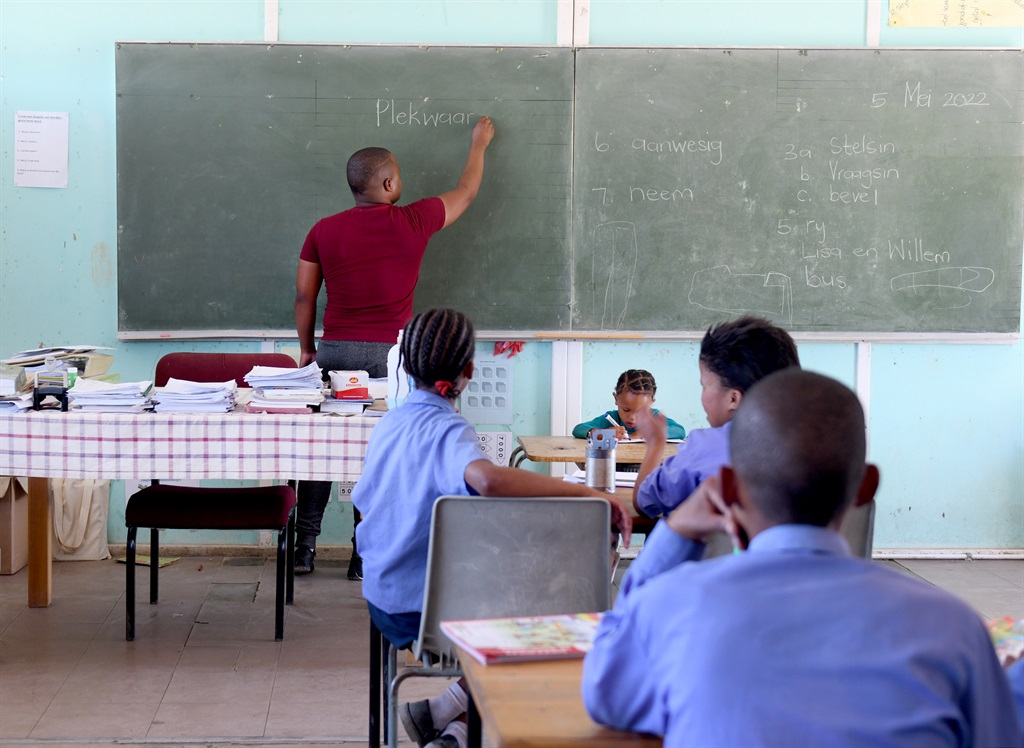
While teacher education programmes have been overhauled to include the importance of social justice and democratic forms of engagement, tensions reside in the contextual cultures of schools, writes Nuraan Davids.
World Teachers’ Day is celebrated annually on 5 October to acknowledge teachers' important role in educating and nurturing the next generation of upstanding citizens that every society needs.
While one would like to highlight the positive contributions of teachers on such a day, the reality is that South African schools are unfortunately filled with some teachers who cannot be trusted – neither in their teaching capacity nor in their hearts to treat all pupils with dignity and respect. All teachers cannot be trusted to act ethically in relation to their pupils or their profession.
At the height of the ‘#BlackLivesMatter’ protests, following the murder of George Floyd by a police officer in Minneapolis in 2020, pupils across South Africa took to social media under the banner @yousilenceweamplify to expose their own experiences of harm by certain teachers at historically 'white' schools.
Although reduced to a series of Instagram postings, the accounts captured entire schooling careers characterised by subjections to racism, ridicule, exclusion, and humiliation by a few teachers. Underscoring narratives of painful encounters and exchanges are profound pupil experiences of disappointment and mistrust not only in teachers but in their own capacities to be who they are and to pursue what they desire to become.
Protection of school's image
While a few schools mentioned in the learners' reports responded with serious intentions to revisit institutional cultures and traditions, as well as specific teachers’ conduct, most school principals preferred to interpret the social media accounts as baseless allegations. Ironically, the reluctance by schools in owning the experiences highlighted in @yousilenceweamplify, stems from a fear of losing or compromising the trust placed in the school by learners and parents. They fear that by acknowledging that some (if not all) of the social media accounts are true, or if they make available the information gleaned from investigations, that those implicated, as well as the school, will be brought into disrepute.
There is, therefore, a pre-emptive position of protecting the image of the school, so that the mistrust experienced by some learners is not transferred onto the school. Hence, in order for them to retain the trust of parents and learners, it is better for them to take the risk of not attending to the allegations made by the learners on @yousilenceweamplify, than to risk their trustworthiness by acknowledging that there are indeed incidents of structural racism and othering at the schools. It also reflects a judgment by the school about the school as being more trustworthy than the complaints made by some pupils.
READ | OPINION: Palesa Morudu Rosenberg - Fish Hoek High meltdown – doing the diversity grift
The @yousilenceweamplify reports show that most schools have not succeeded in creating and cultivating integrated learning and social spaces for learners. Thus, we must pay closer attention to our schools, not only as schools but as the bedrocks of our society. Post-apartheid educational policies are replete with references to 'the teacher', with no attentive pause to considering who 'the teacher' is, and how teachers perceive their professional role in a changing society. It is not just that teachers were largely excluded from the design and formation of most policies that directly impacted their roles and responsibilities. It is also the case that no attention has been given to the reality that most teachers at desegregated schools had previously only taught in segregated settings.
Potential critics might counter that we have had nearly 30 years for teacher education programmes to get it right and ensure that the kinds of teachers being prepared know how to engage with diversity and difference and understand the criticality of their roles as caring and trusting teachers. Teacher education programmes have indeed been overhauled to include the importance of social justice and democratic forms of engagement.
Misaligned
The arising tensions, however, reside in the contextual cultures of schools. On the one hand, schools have retained their historical racial identities, both in terms of teacher and pupil demography, unreflective of the country's diversity. On the other hand, in desegregated schools, learners, who are not connected with the historical identity of a school are still not integrated and often struggle to find a sense of inclusion and trust. It seems fair to argue, therefore, that most of our schools are wholly misaligned from what the myriad educational policies have in mind.
Efforts at diversifying and democratising schools, as envisaged in a democratic society, cannot discount the critical and powerful role and influence of teachers. Firstly, it is imperative to understand that an idealised persona of 'the teacher' simply does not exist. There are only teachers whose professional identities are deeply embedded in their own personal beliefs and values and who, at times, struggle to reconcile these with the complexities of teaching and engaging with a diverse classroom of learners. Teachers are not mythical beings. They are not immune to the kinds of prejudices that sustained apartheid for 46 years. They are also not above the racism that persists in most communities across the country.
Secondly, teacher education programmes need to be especially cognisant and reflective of the demands of teaching in our schools. This includes awakening pre-service teachers to their own biases and stereotypes so that they might be open to learning from and with difference.
Thirdly, when teachers betray the trust afforded to them by their profession, parents and learners, the harm they inflict is not limited to a momentary lapse in judgment. There are long-term consequences for young people in how they see themselves, how they come to their learning and how they trust in their own relationships. The matter of trust, therefore, is critical not only in teaching-learning encounters but for the kinds of citizens schools produce and cultivate.
- Nuraan Davids is Professor of Philosophy of Education and Chair of the Department of Education Policy Studies at Stellenbosch University. This article is based, in part, on her presentation at the Remgro Schools’ mini-conference.
*Want to respond to the columnist? Send your letter or article to opinions@news24.com with your name and town or province. You are welcome to also send a profile picture. We encourage a diversity of voices and views in our readers' submissions and reserve the right not to publish any and all submissions received.
Disclaimer: News24 encourages freedom of speech and the expression of diverse views. The views of columnists published on News24 are therefore their own and do not necessarily represent the views of News24.




 Publications
Publications
 Partners
Partners























